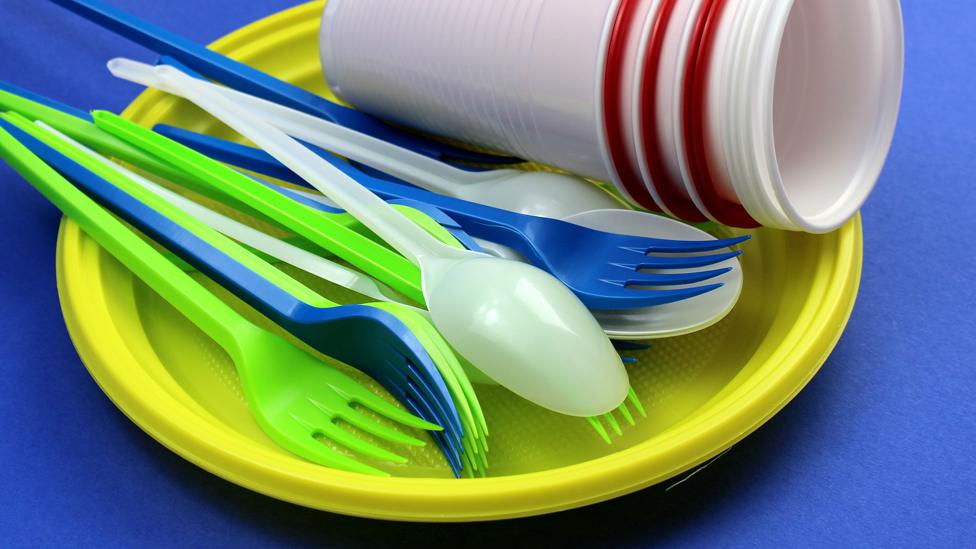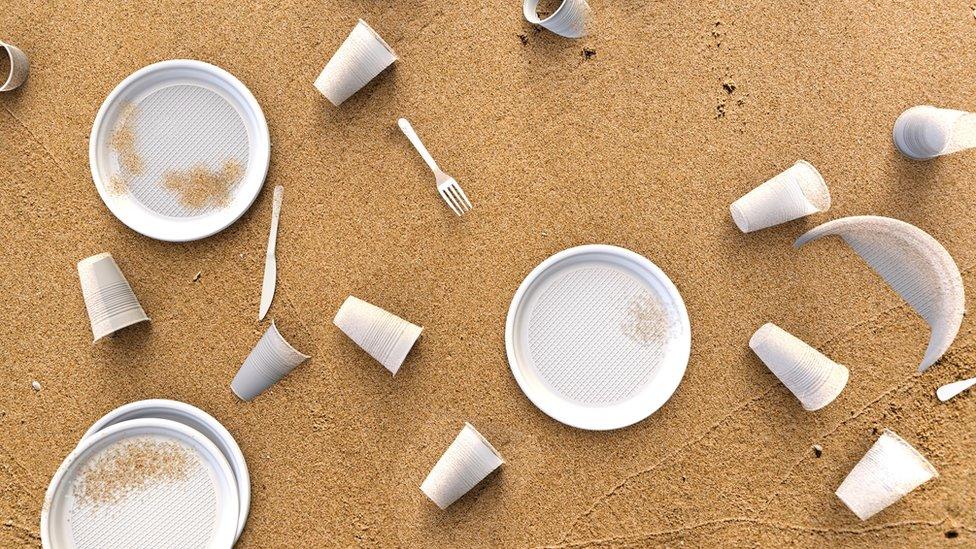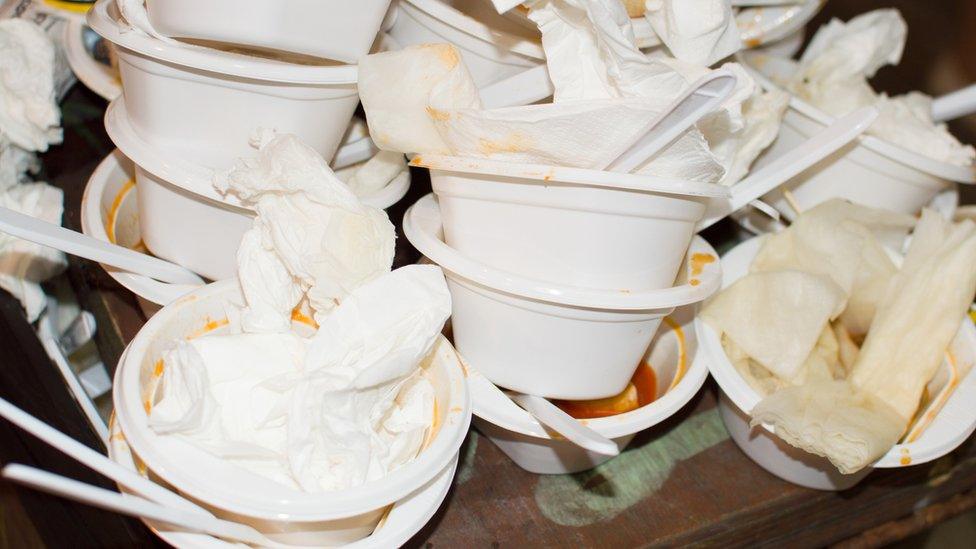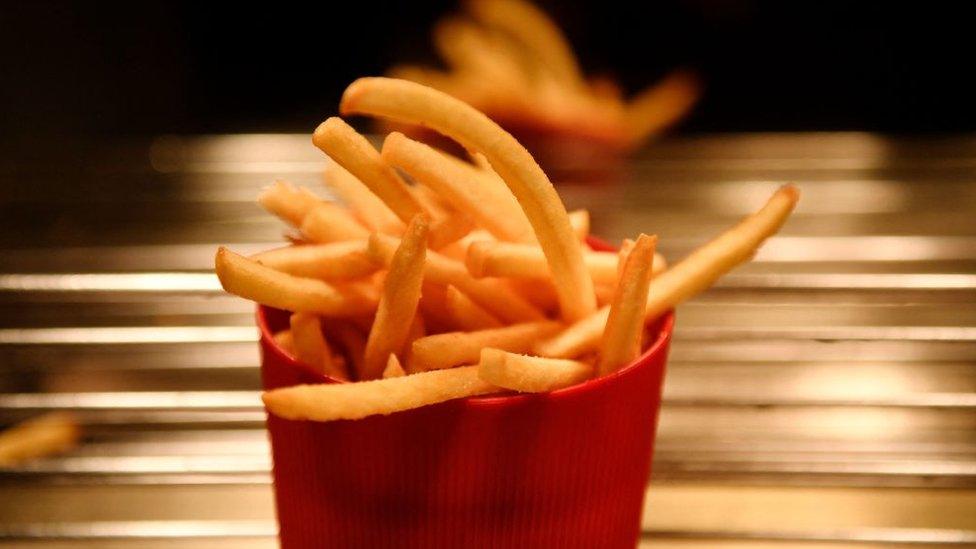Plastic: Single-use cutlery and plates to be banned in England
- Published
- comments

Single-use items like plastic cutlery, plates and trays will be banned for takeaway food in England, the government has said.
The new law comes into affect from 1 October 2023, and follows similar moves already made by the Scottish and Welsh governments.
Government figures suggest that 1.1 billion single-use plates and more than four billion pieces of plastic cutlery are used in England every year.
What is being banned?
This ban mainly relates to takeaway food and drink, and does not stop people buying these items in supermarkets or shops.
Campaigners have welcomed the ban, but called for a wider-ranging plans for cutting back more plastic .
What's the problem with plastic?

Plastic waste often does not decompose and can last in landfill for many years.
Although items like disposable plates might be useful in terms of food hygiene, it can also end up as litter, in turn polluting soil and water.
The Department for Environment, Food and Rural Affairs (Defra) said each person in England uses an average of 18 single-use plastic plates and 37 items of plastic cutlery every year.
But from that just 10% are recycled.

This ban mainly relates to takeaway food and drink - disposable items will still be available to buy in shops
The decision to ban the items follows a long consultation asking the public what they think about the idea, with the results due to be published on 14 January.
Similar bans have already been made in Scotland and Wales, while single-use plastic straws, stirrers and cotton buds were already banned in England in 2020.
France recently banned using throwaway fast food boxes, cups and packaging for restaurants, although they can still be given along with takeaway items.
What's a better alternative to single-use plastic?
Megan Randles is a political campaigner for Greenpeace UK, an organisation which works to help protect nature.
She said that they welcomed the ban but further action was needed, adding: "We're dealing with a plastic flood, and this is like reaching for a mop instead of turning off the tap."
She has called on the government to deliver a "meaningful" strategy on how to reduce plastic use, which would also include strict targets and "a proper reuse and refill scheme".
This new ban will have a huge impact to stop the pollution of billions of pieces of plastics and help to protect the natural environment for future generations.
Environment Secretary Thérèse Coffey said: "I am determined to drive forward action to tackle this issue head on. We've already taken major steps in recent years - but we know there is more to do."
- Published2 January 2023

